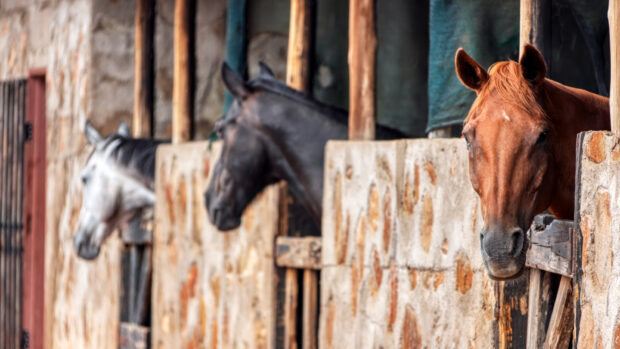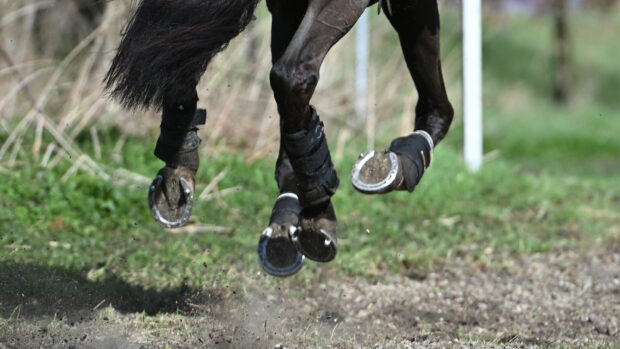The cost of a riding school licence can vary by more than £2,500 between local authorities – as a new report highlights inconsistencies.
At the end of December Defra published its findings from a post-implementation review of the Animal Welfare (Licensing of Activities Involving Animals) (England) Regulations 2018, which H&H reported had taken place two years ago (news, 2 February 2023).
The review considered evidence on the effectiveness of the regulations. Under the hiring out horses section, it was reported that stakeholders agree the regulations have “successfully improved animal welfare” and there is “broad support for the robust safety provisions in the guidance”.
The report stated “in terms of improvements”, there was limited knowledge among local authority inspectors of the needs of donkeys, and a “need for clarity” on whether carriage driving is a licensable activity, and calls for safeguarding provisions to be added to the regulations as a large proportion of riding schools’ customer bases are children.
Licensing fees and processes were discussed and it was stated that the licensing system – which includes pet boarding, pet sales and dog breeding – is “intended to be broadly self-financing, with local authorities charging applicants and operators fees to recover the costs of administration”.
Local authorities that responded to the review, which were not named, believed that the costs to them of implementing the regulations had increased – in part by the need to outsource to vets or appropriately qualified inspectors from other local authorities “to address the shortfall (or absence) of qualified inspectors”.
“These impacts on local authorities may have been passed on to scheme applicants,” read the report.
The report said the regulations “allow local authorities to charge fees they consider necessary” for applications and inspections. But the regulations require that “these fees do not exceed the reasonable relevant costs anticipated by a local authority”.
The report said data confirms a variation in licensing costs; an example given for hiring out horses, was a three-year licence costing £51 from one local authority, £2,775 from another.
It was also noted that local authorities have “different individual processes and approaches”.
“Some may choose to employ their own full-time licensing inspectors, others may appoint veterinarians or subcontract the work to neighbouring local authorities. Local authorities may have a higher or lower number of licence-holders within their boundaries and this, together with other local differences, suggests that some variance is to be expected,” the report stated.
“Businesses also reported facing increased costs associated with meeting the licensing conditions. These reports have centred around the costs of complying with the administrative and record-keeping requirements, and the costs associated with training staff.”
British Horse Society (BHS) chief operating officer Sarah Phillips told H&H the society agrees that the updated licensing system has “helped to provide clarity across the industry”.
“Notably, the inclusion of all relevant equestrian activities and businesses under this licensing framework has made a positive difference in delivering improved welfare practices,” she said.
“For greater success, it is important this licensing model is implemented consistently and we would like to see more uniformity across the country.
“However, we do also recognise that fees will vary, as they are determined by the size of the property and/or business. The processes have to take many factors into consideration, including demand in the area of the local authority and the resources they have available. Naturally, this is going to lead to differing approaches.”
Ms Phillips added that in collaboration with other equine organisations, the BHS continues to work with local authorities and the Government to “evaluate any discrepancies and to nurture the best processes possible”.
“These conversations are essential to guarantee the stability for equestrian businesses and critically, equine welfare,” she said.
Kim Ayling, World Horse Welfare head of public affairs, said the charity has “concerns regarding a lack of consistency in the licensing of riding establishments, particularly when it comes to assessing welfare and the cost of a licence, as identified in the review”.
“This not only has a negative impact on the welfare of the equines but can also be detrimental to the viability of these businesses,” she said.
“While the review outlines that training has improved, it has also highlighted the lack of appropriately qualified inspectors. This is a significant barrier to the effective and consistent implementation of the licensing of activities.”
- To stay up to date with all the breaking news from major shows throughout 2025, subscribe to the Horse & Hound website
You may also be interested in:

Pammy Hutton: ‘Riding schools are our lifeline – but who will fight for them?’

Improved optimism for the future of riding schools, but rates still a big issue

Horse world faces ‘perfect storm’ of wage and tax increases

Subscribe to Horse & Hound magazine today – and enjoy unlimited website access all year round




